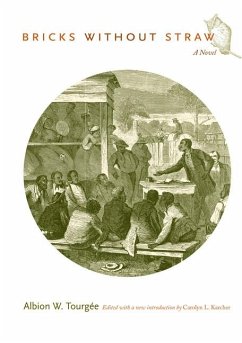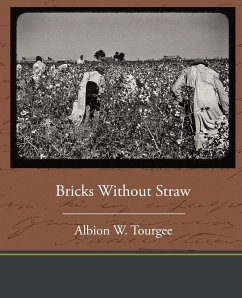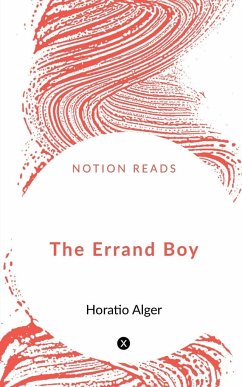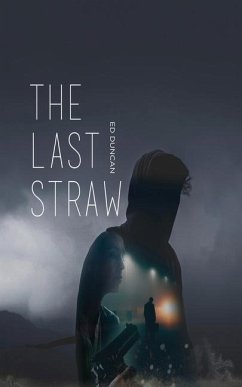
A Fool's Errand & Its Sequel, Bricks Without Straw
The Classics Which Condemned the Terrorism of Ku Klux Klan and Fought for Preventing the Southern Hate Violence
Versandkostenfrei!
Versandfertig in über 4 Wochen
15,99 €
inkl. MwSt.

PAYBACK Punkte
8 °P sammeln!
In "A Fool's Errand & Its Sequel, Bricks Without Straw," Albion Winegar Tourgée excoriates the socio-political dynamics of post-Civil War America through a blend of realism and satirical wit. This dual narrative follows the journey of a Northern carpetbagger who attempts to uplift the South during Reconstruction, offering a raw portrayal of race relations and the challenges of social justice. Tourgée's literary style intricately weaves personal anecdotes with broader societal commentary, ultimately reflecting the disillusionment of an era marked by both hope and betrayal. The works are roote...
In "A Fool's Errand & Its Sequel, Bricks Without Straw," Albion Winegar Tourgée excoriates the socio-political dynamics of post-Civil War America through a blend of realism and satirical wit. This dual narrative follows the journey of a Northern carpetbagger who attempts to uplift the South during Reconstruction, offering a raw portrayal of race relations and the challenges of social justice. Tourgée's literary style intricately weaves personal anecdotes with broader societal commentary, ultimately reflecting the disillusionment of an era marked by both hope and betrayal. The works are rooted in the historical context of Reconstruction, illuminating the complexities of race, class, and identity in American society. Tourgée, a prominent abolitionist and civil rights advocate, draws from his experiences as a judge and political figure in North Carolina during Reconstruction. His engagements with the issues of equity, education, and the rights of African Americans resonate throughout these narratives, suggesting that his advocacy informed his storytelling. Tourgée's deep commitment to social justice prompts a compelling exploration of human folly against a backdrop of systemic inequality. This work is a must-read for those interested in understanding the intricate tapestry of American history and the enduring struggle for justice. Tourgée's sharp wit and profound insights illuminate the human condition, inviting readers to reflect on the repercussions of societal choices. Readers will find themselves both challenged and enlightened by this representative exploration of kindness, folly, and resilience.












